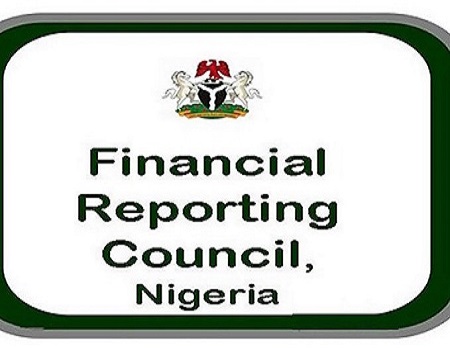The Financial Reporting Council of Nigeria (FRCN) has unveiled the guide to companies on how to report their compliance with Nigerian code of corporate governance.
Specifically, paragraph 1(2) of the Regulation on the Adoption and Compliance with the Code states that reporting entities are to report on their application of the Code in their annual reports.
In a press statement available on FRCN website, the council noted that the completion and submission of the reporting template described above will be deemed to satisfy the requirement for reporting on the application of the Code, as well as the requirements indicated in the Code.
It stated that Paragraph D of the Introduction section of Nigerian Code of Corporate Governance 2018, on Monitoring the Implementation provides that, “The implementation of this Code will be monitored by the FRC through the sectoral regulators and registered exchanges who are empowered to impose appropriate sanctions based on the specific deviation noted and the company in question.
“In consonance with the relevant regulatory agencies of the Federal Government of Nigeria, the Council will subsequently issue corporate governance guidelines to assist implementation as may be required to respond to prudential considerations in different sectors of the economy.”
In furtherance of this, the Council said it has been engaging with all Sector Regulators, for the purpose of developing Sectoral Guidelines of Corporate Governance on specific requirements relevant to each sector which are not covered under NCCG 2018.
It said all existing sectoral codes of Corporate Governance are to be withdrawn, and Sectoral Guidelines of Corporate Governance will be issued to address sector-specific matters or requirements on Corporate Governance.
“To this end, NCCG 2018 as the National Code, would be the only Code of Corporate Governance in Nigeria. At the current time, the Council’s expectation is that the Sectoral Guidelines would be released once the engagement with Sectoral Regulators is completed,” it stated.
According to the FRCN, Reporting Template all public companies (whether a listed company or not; all private companies that are holding companies of public companies or other regulated entities; all concessioned or privatised companies; and all regulated private companies being private companies that file returns to any regulatory authority other than the Federal Inland Revenue Service (FIRS) and the Corporate Affairs Commission (CAC), shall report on the application of the Code in their annual reports for financial years ending after January 1, 2020, in the form and manner prescribed by the FRC.”
ALSO READ: Governor Obiano’s wife decries discriminatory practices against widows
The FRC set up a Web Portal Committee (WPC) comprised of stakeholders, which contributed to the development of an online portal for electronic submissions of reports on compliance with the
NCCG 2018. Members of the WPC also worked with the FRC and others to develop a reporting template to simplify and harmonize Code compliance reporting by reporting entities. Reporting entities according to the agency, are expected to access, complete, and submit the reporting template online.
The online portal is still at the stage of development and a link to the portal will be made available in a subsequent communication it stated.
” Until the web portal is completely developed, companies are expected to download the reporting template from the FRC’s website, complete it and submit a copy of the completed report to:
(1) their sector regulators; (2) the FRC at fookediran@financialreportingcouncil.gov.ng; and, for listed companies, the stock exchanges on which they are listed.
“Additionally, a completed copy of the reporting template should be hosted on the investors’ portal on the company’s website for a minimum of five (5) years, alongside the company’s communication policy, annual reports, and other relevant information as indicated in Section 27.4 of the Code, ” the FRCN statement read in part.
The Financial Reporting Council of Nigeria also conveys regulatory forbearance to accommodate the inevitable global effects of the COVID-19 pandemic and delayed issuance of the reporting template.
However, reporting entities are required to include in the Governance Report included in their annual reports, an abridged version or summary of the following matters included in the Code.
(a) Section 12.6 – processes used in relation to all Board appointments;
(b) Section 15.2 – summary of the report of the annual corporate governance evaluation and the extent of the application of the Code, as well as the name of the consultants, where independent experts have been engaged;
(c) Section 16.8 – remuneration policy, as well as the remuneration of all directors;
(d)Section 16.13 – sitting allowances, Directors’ fees and reimbursable travel and hotel expenses, as well as any other allowances and benefits made to NEDs; (e)Section 17.7 – the risk management framework; (f) Section 18.2 – where the Board has decided not to establish an internal audit function, whether internally or outsourced, and sufficient reasons for not doing so, and explanation as to how the Board has obtained adequate assurance on the effectiveness of the internal processes and systems such as risk management and internal control; (g) Section 28.1 – clear information on the Company’s governance structures, policies and practices as well as environmental and social risks and opportunities; (h) Section 28.2 – a summary of the matters indicated in paragraphs (a) – (n), which should cover information relating to Composition of the Board and Board Committees, including names of chairmen and members of each Committee; – Description of the roles of the Board Committees, number of meetings held and attendance of individual directors; – Gender diversity on the Board and employment; – Board appointment, induction and training process; – Summary of Board, Committees, individual Directors’ and overall governance evaluation; – Changes on the board and directors standing for re-election.
It will also contain the tenure showing cumulative years of service of each Director, the external auditor, and external consultant engaged to perform the governance evaluation; – Code of Business
Conduct and Ethics for directors, management and other employees; Human Resource policies and internal management structure; – Sustainability Policies and Programmes; – Policy and cases of clawback; – Fines and penalties (i) Section 28.3 – the nature of any related party relationships and transactions; (j) Section 28.4 – any material matter even though not specifically required by the Code to be disclosed, if in the opinion of the Board such matter is capable of affecting the present or anticipated financial condition of the Company or its status as a going concern.






